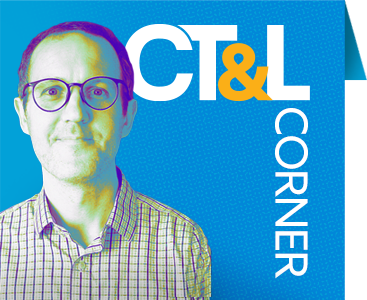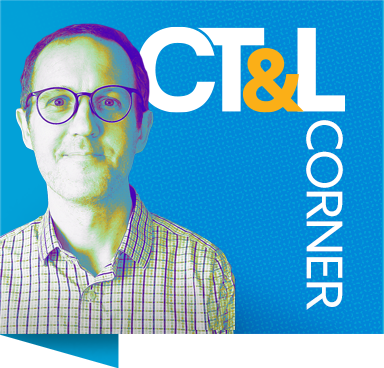This is an end of semester post. Students have turned in their projects, and I know that many of you are busy grading and/or preparing for this week’s Commencement. Understandably, we are looking forward to long overdue periods of rest and relaxation.
When we look back on the semester, I’m left with a question: what do we want students to have learned? We can easily point to our objectives. We wanted them to learn x, y, and z, with the hope that students will realize the applications of x, y, and z in their courses next semester (and, ideally, their professional careers).
But, I’m going to ask another question, similar but different. What do we REALLY want students to have learned? In working with faculty on course design, I have found that this REALLY in the question gets them thinking about things beyond content. Without the need for finding the right verb or objective(s) language, we can say what’s on our mind. In doing course design work with faculty, identifying the capital G Goals instructors had was revealing:
As an example, one instructor, designing a course focused on examining surveillance tech in democracies and autocracies (light stuff I know…) identified an emotional goal: she wanted her students to care, not take this ‘stuff’ for granted (this ‘stuff’ being how social media companies collected and sold their data online). She wanted to shake them awake (we didn’t turn that one into an objective). Realizing that this was the goal, we frame a course around big, provocative questions, folding in her objectives, but orienting them around what she REALLY wanted them to learn, which was to give a (hoot).
This question of “What do we want them to remember?” is one that shows up in other writing on teaching. James Lang uses the question as a way to stimulate thinking on course design, noting the ways in which content is often secondary in faculty’s answers:
“The biologist made this point most clearly: “Everything I learned as an undergraduate, 25 years ago, is out of date. The same will be true for my students in 25 years.””
This is not an argument against teaching content, but it is an argument for keeping content in perspective. In a recent substack post, Alexandra Mihai makes a similar argument:
“I personally do not believe that universities should profile themselves as a conveyor belt for the labour market…Where we can add value is in developing the right attitudes and competencies that go beyond factual disciplinary knowledge.”
So, when we ask what we want students to learn, the word really comes into play: what do we really want them to learn, and what really matters? Your answer may still be how to do x, y, or z, and many of us have stories about students who contact us after a semester (or two) when they finally see the point of a particular exercise or concept. (And you’d also be right to point out that some of the higher-order goals we have are built on students’ foundational skills/knowledge).
At the same time, research on forgetting is not very forgiving to our goals for student learning. Many of us are familiar with the (accurate) narrative that cramming for an exam might mean doing well in the short term, but we tend to forget much of that knowledge as soon as the exam is over. I think this is something to be wary of, and we can design courses that challenge students to use information multiple times, in multiple ways. This challenge of ‘learning transfer’ is not a sign that your students haven’t learned, it’s just a human difficulty (many studies show that we don’t see the common ‘structure’ connecting similar problems).
I say all of this not to cast doubt on what you students learned, but I use it as an illustration of how what students will remember is often a core idea, or the experience of working on a certain project. If we stop to ask ourselves what we remember from our own college experiences, often it’s a mentor (per last week’s post on relationship-building being evidence-based practice), or a project where we got to do something unique, or a challenging course that challenged our own self-concept. When you ask what you REALLY want students to learn, I hope you’ll remember that, too.



